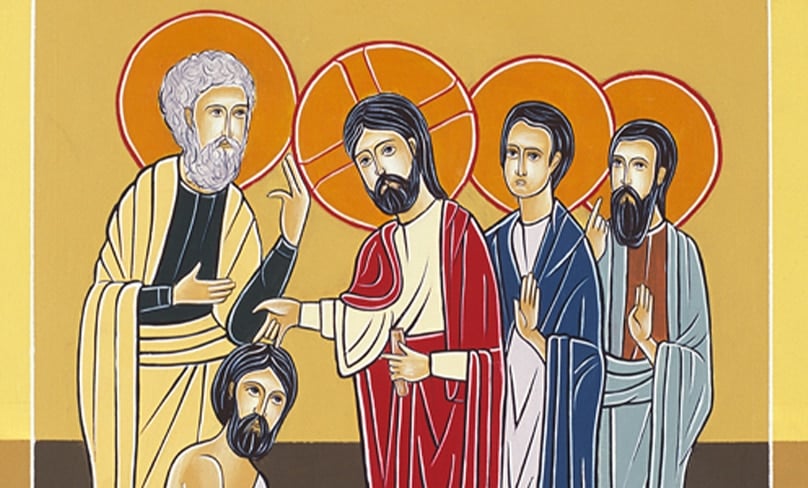
By Salwa Elias
This “Sunday of the Leper” is the first Sunday of Lent in the Maronite liturgical calendar. Our liturgy recounts the merciful healing of a man who was unclean, and forced to live alone, outside the city walls. It’s hard for us today to understand what this meant in ancient Israel.
Firstly, he was obliged to leave his home and family, and be apart from all others. When we speak of the “countryside” across which Jesus and his disciples walked, we should not think of the green fields which border the rivers of the Australian inland. The wilderness of Judah was hard and unforgiving, unless it was cultivated and maintained.
Therefore, our Lord’s travel at the time of this encounter was not merely a stroll in pleasant landscapes, nor was it a simple interaction with a sick person. The unexpected appearance of a leper would have been, for ordinary people, a frightening matter. Lepers were described as “the living dead,” crying out “unclean, unclean.”
It was thought that only a prophet could heal leprosy, and since Jesus gave the apostles the power to heal lepers (Matthew 10:8) they must have stood at the level of prophets. This is why it was so important that the former leper not only be declared clean by the priests, but that he be a testimony that the Lord is among them.
The leper was unclean, not only because of his leprosy, but also because his condition was often seen as resulting from the curse of God (Lev 14:34). Not all sorts of uncleanness were equally serious, but this particular type of impurity was one of those which demanded both a moral and a ritual purification, and so was seen as related to something wrong and even sinful.
Purity was required if God was to dwell with Israel. That is, uncleanness was inimical to holiness. It was, in short, a threat to good human life because it broke the connection with the divine. For that reason, uncleanness was treated with horror.
When Jesus healed the leper, he made it clear that he “chose” to make the leper clean again. Jesus is so conscious of our internal fears and anxieties. He knows that we are too ashamed or afraid to seek God’s mercy and forgiveness, therefore, he soothes our broken spirit with words of encouragement to ease our apprehensions, with words like “take courage.”
This is how we must show love and mercy toward our neighbour also. To show mercy in sacrificing ourselves for others, to imitate Jesus, Mary, and Joseph; giving of ourselves without complaint or counting the cost, without mentioning the inconveniences, and without reminding our neighbour how little they deserve our mercy or kindness.
Lent is the most favourable liturgical season of the year for this interior renewal. It is the best time for the conversion of our hearts and minds, for the redirection of our paths back to the original source of our creation and very existence.
It is easy to think of Lent as a time of sacrifice, rather than to consider these 40 days as an opportunity to gain so much more for our souls. After all, it is in giving that we receive. The same applies to mercy.
When we sacrifice ourselves for the sake of another, whether it be our time, our talent or possessions, we must do so with humility of heart. Our acts of kindness should not be made in order to gain recognition or praise for ourselves, but with the intention of showing mercy to our neighbour.
Naturally, when we hear the word “sacrifice,” we think of pain and loss. On the contrary, if we truly love the Lord with all our heart and with all our mind, then we would understand that the true meaning of love is sacrifice.
Keeping this in mind, we no longer complain when confronted with inconvenience, discomfort or frustrations of every kind. Jesus reminds us that “freely you have received, and freely you must give.”
The essence of our giving is in itself merciful love. Each of us will receive the same amount of mercy as we dispense. Let us be generous in giving of ourselves to the Lord, and to those in need throughout this blessed season of purification and oblation.
Salwa Elias is a member of the Maronite Catholic Church and is the EWTN producer for Australia and New Zealand
